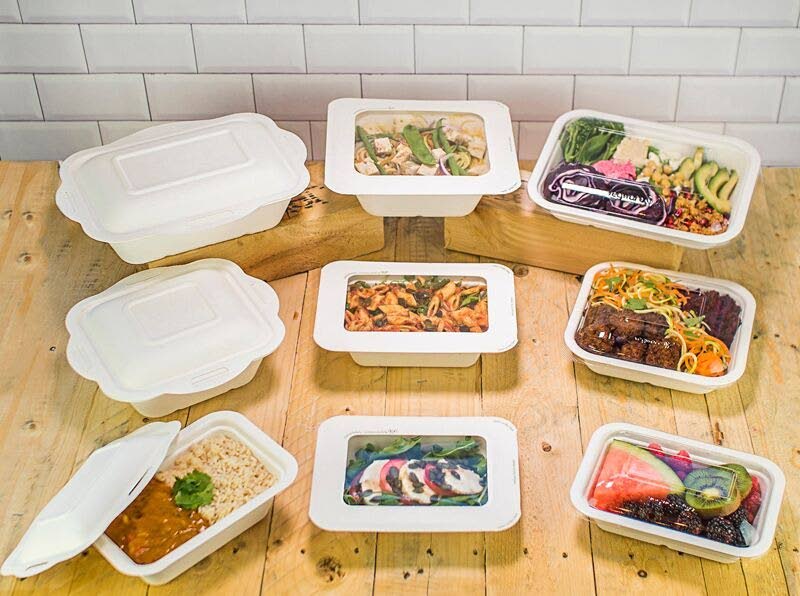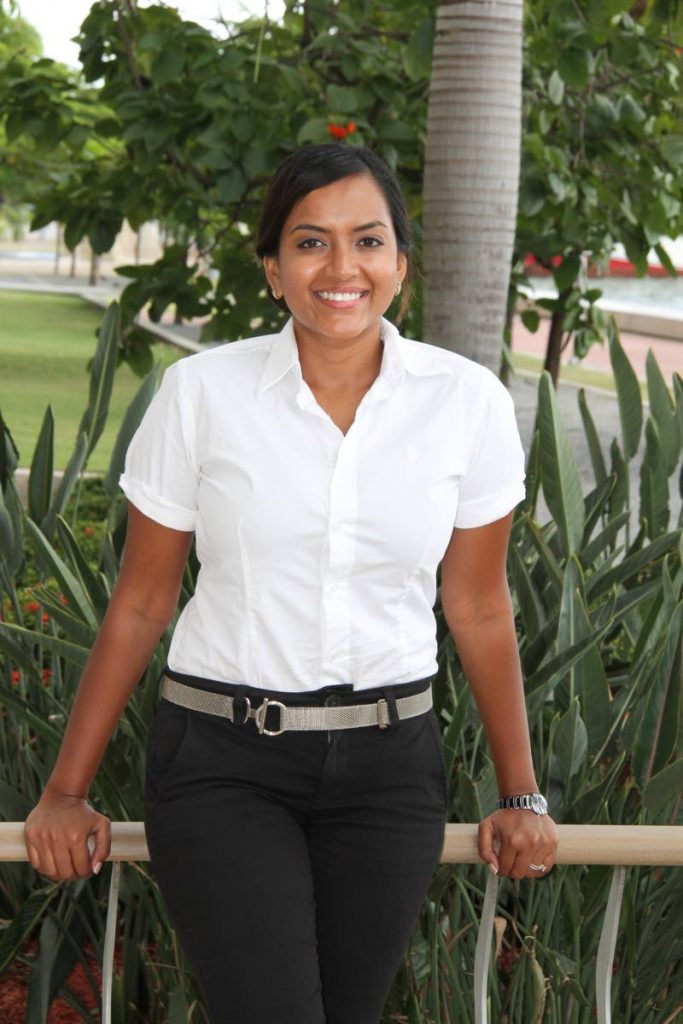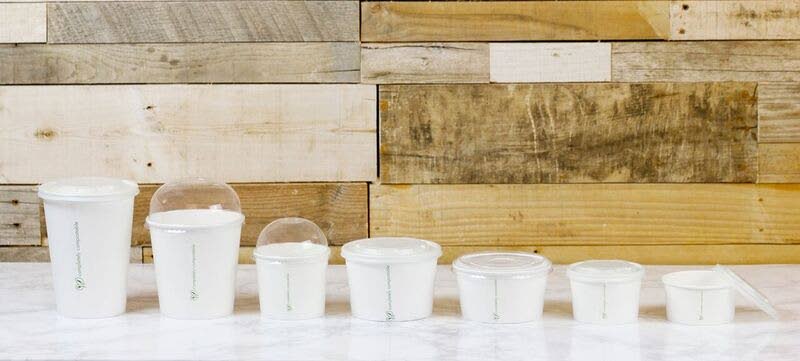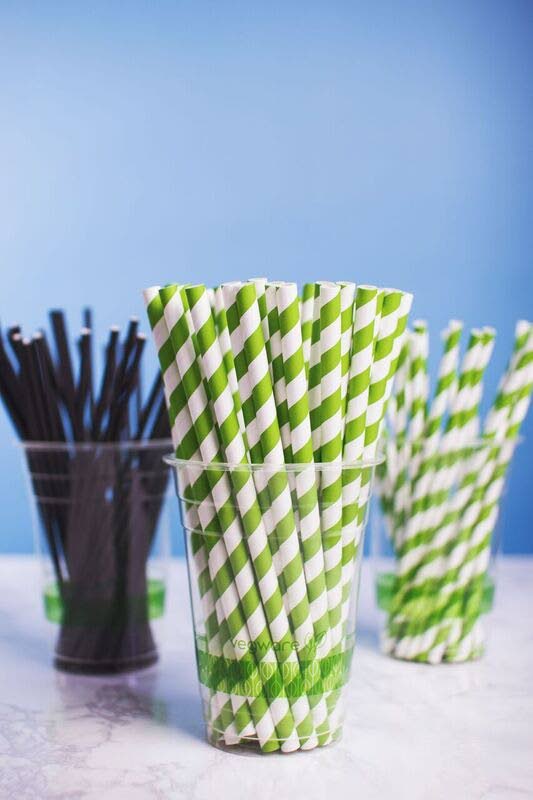Increased interest in compostable products

Hello Green founder and MD Vandana Mangroo says she's "thrilled" that government will make polystyrene foam products – commonly referred to as Styrofoam – illegal by 2019.
"We started Hello Green with one goal in mind – a cleaner, greener Caribbean. We are so ecstatic to be a part of this progress and that others have seen alternative packaging as viable in our market. It's a really great step forward."
Established in June 2016, Hello Green is the local distributor of more than 250, 100 per cent plant-based products manufactured by UK-based company, Vegware.
Unlike the popular plastic and Styrofoam containers, which are oil-based and therefore not biodegradable, Hello Green's inventory of eco-friendly catering disposables and food packaging are, as Vegware states, "stylish, functional, economic and sustainable."

Hello Green is the local and Caribbean (with the exception of Barbados) distributor of more than 250 compostable products from Vegware. These include soup containers, cutlery, napkins, hot and cold drink cups, platters, cupcake carriers, bags in which to put sandwiches and pastries, and even straws.
Cabinet approved the Styrofoam ban two weeks prior to its being announced by Planning and Development Minister Camille Robinson-Regis during a function at the Caroni Bird Sanctuary on July 26.
The minister said a team is working with local manufacturers of this non-biodegradable product to reduce the financial impact of making the necessary changes.
"They have time (during) which their production of Styrofoam must become environmentally friendly but in the meantime, we will ban the importation of Styrofoam products into TT."
Commenting on the transition period, Mangroo told Business Day "this allows manufacturers to adapt their machinery and gives (compostable) distributors like myself time to prepare for increased demand."

Four days after the announcement, Trade and Industry Minister Paula Gopee-Scoon expressed her ministry's "complete support" for the ban.
"(This) provides opportunities for domestic manufacturers to transform and exploit new areas in manufacturing and exporting (of) biodegradable alternatives, including items made from cardboard, corn starch polylactide, bio-plastics, bagasse, fibre and wheat straw, available on the international market."

Manufacturers can access two new facilities to assist them with this transition, both of which were introduced in the 2017-2018 fiscal year by the Trade and Industry Ministry:
*The Revised Research and Development Facility, which provides funding up to TT$1 million to sole proprietors, partnerships and companies wholly owned by TT nationals and registered and operating in TT, for the successful marketplace entry of innovative and technology-driven business ideas in several areas such as manufacturing; and
*The TT$25 million Grant Fund Facility, established for the acquisition of machinery and equipment by export oriented small and medium-sized local manufacturers and agro-processors. Individual grants are limited to $250,000 per beneficiary and will cover up to 50 per cent of the landed cost – excluding installation cost – of machinery and equipment as evidenced by certified invoices.
Application details for these two facilities are available on the ministry's website, https://tradeind.gov.tt/
Mangroo noted TT is actually following in the footsteps of other countries in the region, such as the Bahamas, Dominica, Haiti, St Vincent and the Grenadines, and Guyana. Haiti banned Styrofoam in 2012 while Guyana banned the importation of it in 2016. Dominica's ban on product such as plastic straws, plastic plates, plastic forks, plastic knives, Styrofoam cups and Styrofoam containers comes into effect on January 1, 2019.
This past April, the Bahamas said single-use plastics such as shopping bags, food utensils, straws and Styrofoam food containers, will be banned by 2020.
The Tobago House of Assembly (THA) passed a motion in March 2017 to phase out Styrofoam. During a May 2018 appearance before Parliament's Joint Select Committee of Parliament for Finance and Legal Affairs, THA director for the Environment, Linford Beckles said until legislation is in place, "we are working with the private sector to phase it out voluntarily."
The THA is working with Castara and Crown Point to make them the first Styrofoam-free villages in the country.
Marvelling at how much things have changed for the better over the past two years, Mangroo recalled, "In the beginning, being the first to sell 100 per cent compostable products, I had to really educate people about the product. Once they understood it, they tended to get excited about making the switch. Now people are contacting us.
"After the article came out in (Business Day) in February 2017, interested spiked and in the roughly year and a half since then, the demand for eco-friendly solutions for food service packaging has quadrupled.
"Gourmet/health food places are more inclined to buy our products than other food vendors/restaurants but that doesn't mean our customers are all high-end. We have customers who sell lunch from $20 to $200. Business is a mix – we do get a lot of individuals who want it for personal use but most of our customers are businesses."
There are a few other companies selling compostable products, but Mangroo noted they are not at the range or scale of Hello Green.
"They mainly sell hot and cold lunch containers – made from bagasse – and hot cups made from sustainably sourced paper with a plant-based lining instead of plastic lining. It's often part of their existing range, so they're not focused on 100 per cent compostable products like we are."
Hello Green is considering bringing on investors to expand to better meet growing demand as well as to add other products to fill market gaps, such as bags for bakery items.
In keeping with the company's goal of a cleaner, greener Caribbean, Mangroo is working with the TT Solid Waste Management Company (SWMCOL) on a compostable rubbish pilot project.
"We are finalising the trial run of a project to have green waste sorted and composted. We're going to actually show how compostable products can benefit our environment and even the agriculture industry because the intention is that once we're able to compost these products along with food waste and food scraps, local farmers can use this nutrient-rich compost in their fields," Mangroo told Business Day.

Comments
"Increased interest in compostable products"